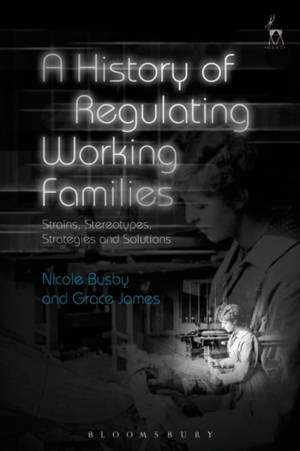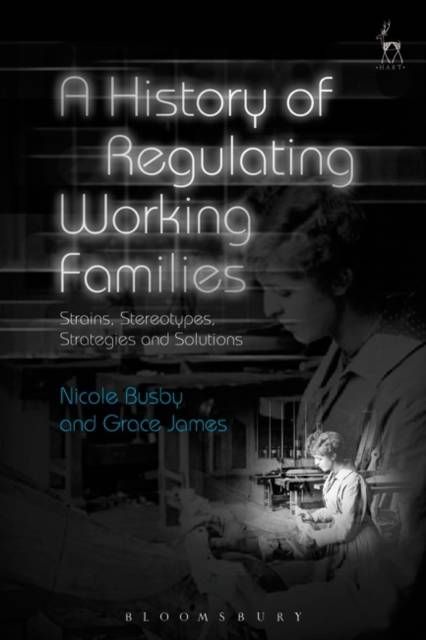
Bedankt voor het vertrouwen het afgelopen jaar! Om jou te bedanken bieden we GRATIS verzending (in België) aan op alles gedurende de hele maand januari.
- Afhalen na 1 uur in een winkel met voorraad
- In januari gratis thuislevering in België
- Ruim aanbod met 7 miljoen producten
Bedankt voor het vertrouwen het afgelopen jaar! Om jou te bedanken bieden we GRATIS verzending (in België) aan op alles gedurende de hele maand januari.
- Afhalen na 1 uur in een winkel met voorraad
- In januari gratis thuislevering in België
- Ruim aanbod met 7 miljoen producten
Zoeken
A History of Regulating Working Families
Strains, Stereotypes, Strategies and Solutions
Nicole Busby, Grace James
Hardcover | Engels
€ 186,95
+ 373 punten
Omschrijving
Families in market economies have long been confronted by the demands of participating in paid work and providing care. Across Europe the social, economic and political environment within which families do so has been subject to substantial change in the post-World War II era and governments have come under increasing pressure to engage with this important area of public policy. In the UK, as elsewhere, the tensions which lie at the heart of the paid work/unpaid care conflict remain unresolved posing substantial difficulties for all of law's subjects both as carers and as the recipients of care. What seems like a relatively simple goal - to enable families to better balance care-giving and paid employment - has been subject to and shaped by shifting priorities over time leading to a variety of often conflicting policy approaches.
This book critiques how working families in the UK have been subject to regulation. It has two aims:
- To chart the development of the UK's law and policy framework by focusing on the post-war era and the growth and decline of the welfare state, considering a longer historical trajectory where appropriate.
- To suggest an alternative policy approach based on Martha Fineman's vulnerability theory in which the vulnerable subject replaces the liberal subject as the focus of legal intervention. This reorientation enables a more inclusive and cohesive policy approach and has great potential to contribute to the reconciliation of the unresolved conflict between paid work and care-giving.
This book critiques how working families in the UK have been subject to regulation. It has two aims:
- To chart the development of the UK's law and policy framework by focusing on the post-war era and the growth and decline of the welfare state, considering a longer historical trajectory where appropriate.
- To suggest an alternative policy approach based on Martha Fineman's vulnerability theory in which the vulnerable subject replaces the liberal subject as the focus of legal intervention. This reorientation enables a more inclusive and cohesive policy approach and has great potential to contribute to the reconciliation of the unresolved conflict between paid work and care-giving.
Specificaties
Betrokkenen
- Auteur(s):
- Uitgeverij:
Inhoud
- Aantal bladzijden:
- 184
- Taal:
- Engels
Eigenschappen
- Productcode (EAN):
- 9781849465571
- Verschijningsdatum:
- 6/08/2020
- Uitvoering:
- Hardcover
- Formaat:
- Genaaid
- Afmetingen:
- 156 mm x 234 mm
- Gewicht:
- 439 g

Alleen bij Standaard Boekhandel
+ 373 punten op je klantenkaart van Standaard Boekhandel
Beoordelingen
We publiceren alleen reviews die voldoen aan de voorwaarden voor reviews. Bekijk onze voorwaarden voor reviews.









